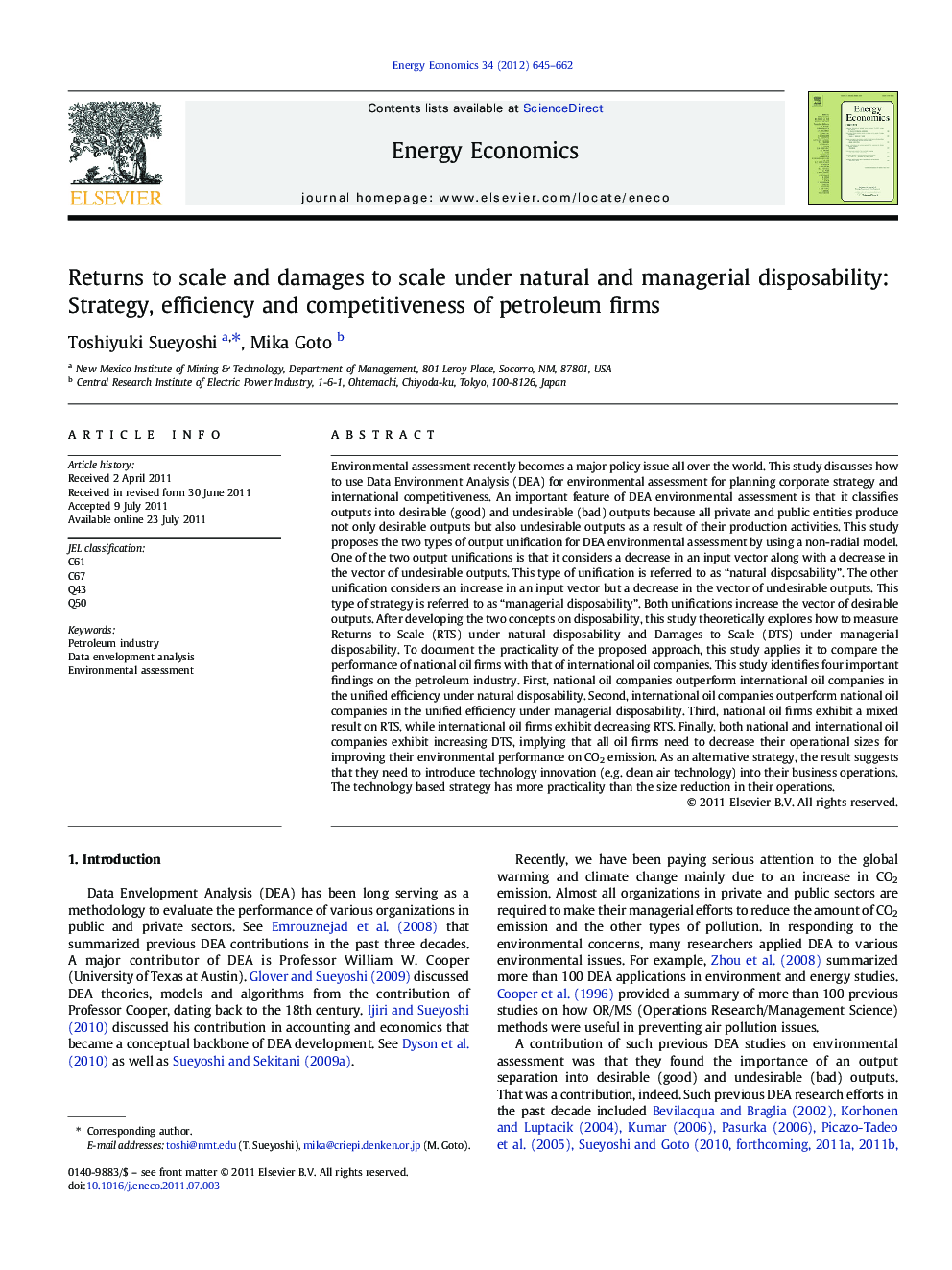| کد مقاله | کد نشریه | سال انتشار | مقاله انگلیسی | نسخه تمام متن |
|---|---|---|---|---|
| 5065407 | 1372315 | 2012 | 18 صفحه PDF | دانلود رایگان |

Environmental assessment recently becomes a major policy issue all over the world. This study discusses how to use Data Environment Analysis (DEA) for environmental assessment for planning corporate strategy and international competitiveness. An important feature of DEA environmental assessment is that it classifies outputs into desirable (good) and undesirable (bad) outputs because all private and public entities produce not only desirable outputs but also undesirable outputs as a result of their production activities. This study proposes the two types of output unification for DEA environmental assessment by using a non-radial model. One of the two output unifications is that it considers a decrease in an input vector along with a decrease in the vector of undesirable outputs. This type of unification is referred to as “natural disposability”. The other unification considers an increase in an input vector but a decrease in the vector of undesirable outputs. This type of strategy is referred to as “managerial disposability”. Both unifications increase the vector of desirable outputs. After developing the two concepts on disposability, this study theoretically explores how to measure Returns to Scale (RTS) under natural disposability and Damages to Scale (DTS) under managerial disposability. To document the practicality of the proposed approach, this study applies it to compare the performance of national oil firms with that of international oil companies. This study identifies four important findings on the petroleum industry. First, national oil companies outperform international oil companies in the unified efficiency under natural disposability. Second, international oil companies outperform national oil companies in the unified efficiency under managerial disposability. Third, national oil firms exhibit a mixed result on RTS, while international oil firms exhibit decreasing RTS. Finally, both national and international oil companies exhibit increasing DTS, implying that all oil firms need to decrease their operational sizes for improving their environmental performance on CO2 emission. As an alternative strategy, the result suggests that they need to introduce technology innovation (e.g. clean air technology) into their business operations. The technology based strategy has more practicality than the size reduction in their operations.
⺠National oil firms exhibit a mixed result on the type of RTS (Returns to Scale). ⺠International oil firms show decreasing RTS. ⺠Most of national and international oil firms exhibit increasing DTS (Damages to Scale). ⺠The increasing DTS implies that oil firms need to decrease their operational sizes to reduce the amount of CO2 emission. ⺠As an alternative, they need to introduce technology innovation for clean air into their operations.
Journal: Energy Economics - Volume 34, Issue 3, May 2012, Pages 645-662